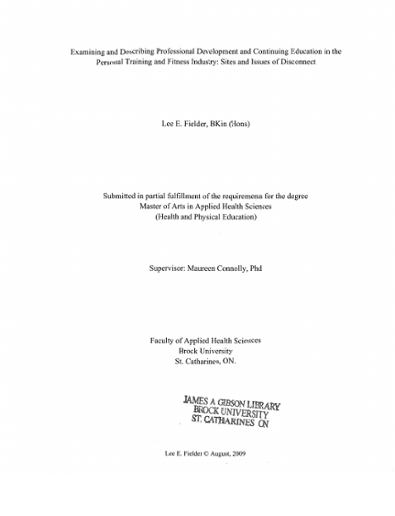
The wages of personal trainers vary depending upon where they work. One-on-one sessions can be as low as PS80, or even higher in the more affluent London areas. The average wage of a personal trainer in other parts of the UK is between PS25 and PS35 per hour. A trainer who lives in an area that is wealthy can earn between PS40,000-60,000.
Your potential to earn
You can make a great living as a personal training professional. There are several factors to consider, such as location and experience. Clients may pay less for personal trainer services in small towns than they would in larger cities. However, there may be a greater demand for personal coaching services in some cities than the supply.

Location
A personal trainer's wage will vary depending on location. When calculating the wage of a personal trainer, there are many things to take into account. A trainer's market influence and benefits will impact the amount of wages and benefits that they are eligible for.
Incentives
Consider offering incentives to clients if you are in the personal training business. These bonuses can range from cash bonuses to free meals. For signing on new clients, achieving training goals, selling higher-end packages, or for signing up, bonuses are often offered. These bonuses are based on your monthly production. This is the amount that you make before taxes. To pay for their expenses, many companies take up to 29% off your commission checks.
Hourly rate
The hourly rate of a personal trainer can range widely, from $25 to $50 an hour. The average hourly rate for a consultation is $40-50. The rate is typically based on the trainer's reputation and volume of clients. A trainer who is successful can make anywhere from three to nine consultations per week, which amounts to $23,400 annually.
Certifications
Education and certification are required for a career as a personal coach. A certified personal trainer (CPT) will assist clients in reaching their personal fitness goals. You will also create an exercise program that targets improving client's overall health and fitness. You will also provide advice to clients regarding nutrition, weight control and lifestyle. You can choose to work at home with clients or in a gym. Some personal trainers also sell products and memberships.

Incentives for Online Training
To attract new clients to your personal training online business, you can offer incentives to existing members. For example, you could offer shirts and sports gear, as well as lunch coupons, movie tickets, or shopping sprees. Incentives can also be given to your staff members for referring new members. These programs will significantly increase your potential income.
FAQ
Can I eat when I'm working out?
Yes. Yes. You should choose low-calorie snacks, such as watermelon (carrots, celery), apples, bananas and grapes. These foods are high in nutrients, which can improve your performance during training.
What are Resistance Training Exercises?
Resistance training involves using weights or other objects to perform specific movements. For example, lifting weights strengthens your arms, shoulders, chest, back, legs, and core. Resistance training promotes strength, muscle mass, and bone density.
What is Cardio Exercises?
Cardiovascular exercises are those that require your heart and lungs to work harder than normal. These include swimming, running, bicycling or rowing. These activities help you burn fat and increase your metabolism. These activities are great for staying fit because they strengthen your heart and lungs.
Which Is more important? Exercise, diet, sleep?
It all depends on your goals. It is important to lose weight. However, if you want to gain muscle mass, then exercise is the most important factor for building muscles. Sleep is not as important as it seems, since it has no effect on how you perform throughout the day.
Statistics
- Physical activity confers the following maternal and fetal health benefits: a decreased risk of pre-eclampsia, gestational hypertension, gestational diabetes (for example, 30% reduction in risk) (who.int)
- In 2018, the World Health Assembly agreed on a global target to reduce physical inactivity by 15% by 2030 and align with the Sustainable Development Goals. (who.int)
- Globally, 81% of adolescents aged 11-17 years were insufficiently physically active in 2016. (who.int)
- Globally, 28% of adults aged 18 and over were not active enough in 2016 (men 23% and women 32%). (who.int)
External Links
How To
How to motivate yourself into following a fitness regimen
A fitness program is a collection of exercises that you do regularly over a period of time. It is a way to build muscle mass and tone the body. Regular physical activity improves cardiovascular health and reduces blood pressure, cholesterol levels, risk of heart disease and stroke, diabetes, depression, anxiety, stress, obesity, osteoporosis, and many other diseases. Regular exercise can also provide psychological benefits such self-esteem.
Why do you want to follow your own fitness routine?
You should consider a fitness regimen if you are looking to lose weight, get healthier, and be more fit. Why would you want one? Let's find the answer!
What does it mean, to be a part of a fitness program?
This means that you should do some type of exercise at least three times per week, such as running, swimming, biking, swimming, yoga or martial arts. This doesn't mean you have to do it for hours. Just 30 minutes can burn calories and keep your body healthy. The most important thing is that you stick to the plan. You don't have to miss any days. Just pick up where your last one left off the next time.
How much time will I need to devote to my workouts?
It all depends on how busy your schedule is. For a moderate workout, it takes between 20 and 30 minutes. Begin slowly with just five to 10 minutes if this is your first time exercising. Gradually increase the time until you feel comfortable.